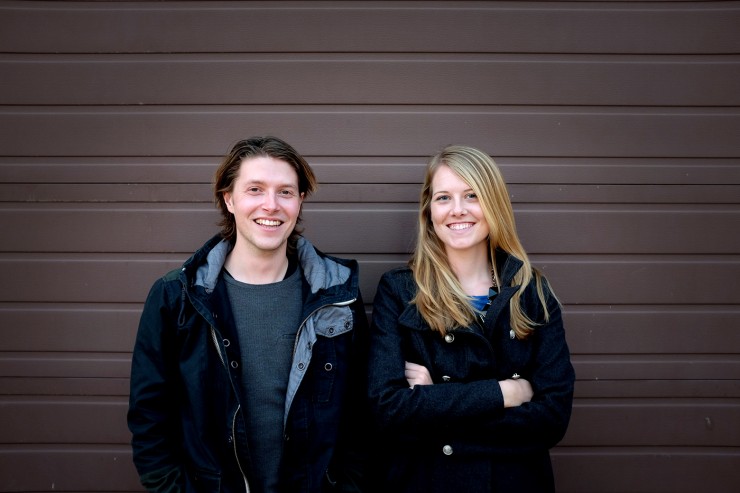by Thea Singer
For the members of the Mixed Paper Design Collaborative, founded by four Northeastern alumni, addressing global climate change will be the name of the game on Saturday afternoon in Boston.
That’s when the group—which generates “designs for resiliency in urban coastal areas,” according to co-founder David Parker, AMD’13—will host a round of the game World Climate, a climate change negotiations exercise.
The World Climate game was developed by Massachusetts Institute of Technology professor John Sterman and Drew Jones of the nonprofit organization Climate Interactive, which creates tools for exploring issues such as climate change and clean energy.
Tracking the footprint
The World Climate game brings people together to serve as “delegates” from regions across the development spectrum to simulate an international climate change negotiation. At the start of the game, the participants receive “briefings” describing their particular delegation’s circumstances and contribution to global warming. They are then charged with reaching an agreement that will curb greenhouse gas emissions enough to limit global warming to 2 degrees Celsius above preindustrial levels by 2100.
That agreement, say the game hosts, matches the one the United Nations 21st Conference of Parties, or COP21, must reach in Paris this December. The COP21 includes representatives from governments, the private sector, and other major decision-making bodies around the world.
“We liken the game to a Model UN,” says Mixed Paper member Ashley Cryan, MES’13, who won an award at Northeastern’s 2013 Research, Innovation, and Scholarship Expo for her work on the potential effects of climate change on the incidence and severity of the harmful algal blooms known as red tides.
At game’s end, each delegation determines its emission reduction pledges, which, for example, might include to what extent it will switch to renewable energy sources or expand forests to remove carbon dioxide from the atmosphere. The pledges are entered into a computer simulation projected on a large screen that shows all parties, in real time, how their decisions will affect the global climate system, based on metrics such as temperature increases and sea level rise.
“Thousands of people, including the 30 at our event, will be playing the game around the world,” says Cryan. “The aim is to engage the Greater Boston community in climate science, policy, and advocacy ahead of the climate talks in Paris.”
An interdisciplinary approach to resilience
Mixed Paper, which now comprises seven members, sprang from a prize-winning project that Parker began with Lukas LaLiberté, Matthew Stoner, and Debby Yeh, all AMD’13, as students. The project involved reimagining neighborhoods in the Red Hook section of Brooklyn, New York, after Superstorm Sandy. The students used elements of architecture, environmental science, and graphic design in their plan to rebuild the area.
“Mixed Paper focuses on how a city can best bounce back after a shock, from the perspective of both infrastructure and communities, in particular, the populations most vulnerable to the disaster,” says Cryan, who currently works as a programs and administrative assistant at the MIT Energy Initiative. “That includes how it can become resilient to climate change.”
The collaborative is assembling a “microcosm of the Boston community” to play the game, says Parker, noting the inclusion of professionals as well as college and high school students. “We’ve worked to incorporate high school students,” adds Cryan, “as they’re the ones who are going to be in charge of the world in the coming century.”
Capping the evening will be talks by Michael Green, S/SSH’13, and Ramón Bueno. Green, who will be attending the COP in Paris in December, is executive director of the Boston-based Climate Action Business Association, which helps small local businesses advocate climate change. Bueno, who is a climate expert specializing in computer modeling and data analysis, will discuss the tradeoffs between mitigating and adapting for climate change.
Northeastern as change agent
Both Parker and Cryan credit Northeastern with setting them on the path to their sustainability-focused careers.
Cryan cites her final co-op, at Woods Hole Oceanographic Institution, on Cape Cod, with leading not only to her RISE award but also her continuing area of research. At Woods Hole, she examined all the ecological studies on red tides in the Gulf of Maine, and correlated the results with climate change predictions. “I seized the opportunity to review existing literature on this species and compile a thesis that addressed how these harmful algal blooms might respond to climate change,” she says. “It was a great learning experience.”
Parker, who currently works as an architectural designer at Kao Design Group, in Somerville, Massachusetts, points to his comprehensive design course during his senior year as a formative influence. “The course showed me that architecture doesn’t end at the building—that’s just the physical aspect of a much bigger idea,” he says. “It should be driven by concepts like global climate change, regional planning, and a resilience mindset.”
The World Climate game will be held Saturday, Nov. 7, from 12:30–4 p.m., at the Boston Society of Architects, 290 Congress St., in Boston.
Originally published in news@Northeastern on November 4, 2015.

